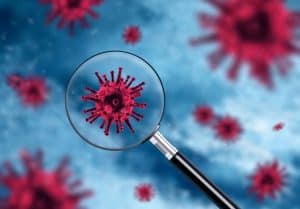
Medical data is notoriously difficult to access. Before we see the true potential of predictive AI cooperation and legislation will be needed.
After the events of 2020, many are looking to the power of artificial intelligence. We’ll want to know when and where the next outbreak might be, helping business and society weather the disruption. Enter predictive AI.
Early in the COVID outbreak, AI indicated that something big was coming. Researchers are scrambling to hone those systems, producing more extensive knowledge of any future outbreaks or pandemics before they reach the fevered pitch of this past year.
See also: New AI Algorithm Could Detect COVID From Your Cough
Cooperation is necessary for predictive AI
Before COVID became a common word in our vocabulary and a top news item, BlueDot (a Canadian startup) noticed an unusual cluster of pneumonia cases around Wuhan and flagged it. It turned out to be the earliest flag for the novel Coronavirus, a full nine days before the World Health Organization.
The company couldn’t predict the magnitude of the outbreak, but it was a definite win for AI’s predictive capabilities. The founder, Kamran Khan, was inspired by the unfolding of the SARS outbreak to start BlueDot. The company scanned around 100,000 government and media sources each day before issuing the warning.
For artificial intelligence to leverage the kind of big data that produces insights such as these, companies and government agencies must be willing to enter into a new era of cooperation. Information sharing across borders from public and private organizations will allow AI monitoring to notice these vital patterns sooner.
Politics and privacy issues are on the horizon
Medical data is notoriously difficult to access, and political distrust could prove to be a considerable obstacle to the kind of information sharing we need to see greater pandemic monitoring. We may see more focus on solving these challenges in the coming months and years, and economies piece themselves back together.
Before we see the true potential of predictive AI here, cooperation and, likely, legislation will need to appear. It’s safe to say that private organizations and governmental agencies will each seek to solve this problem or find common ground with information sharing on this global level.



























